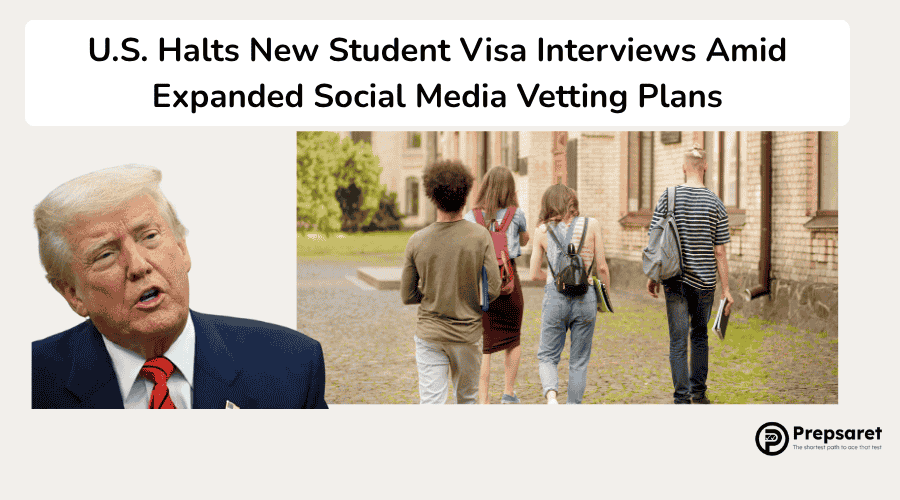In a controversial move that could reshape the future of international education in the U.S., the Trump administration has temporarily paused the scheduling of new student and exchange visa interviews at U.S. embassies worldwide.
The decision, confirmed through a diplomatic cable from Secretary of State Marco Rubio, was widely reported on Tuesday and coincides with plans to expand social media screening of visa applicants.
Highlights:
- The Trump administration has halted new student visa appointments pending new guidance.
- Social media vetting of international student visa applicants will be expanded.
- Existing student visa appointments are not affected by the pause.
- The policy shift follows rising tensions between the Trump administration and elite U.S. universities, especially Harvard.
- Critics argue the move infringes on free speech and harms academic freedom; officials cite national security concerns.
Tightening Student Visa Policies and Social Media Vetting
According to the memo obtained by CBS News and cited by BBC, embassies were instructed to halt any new appointment openings for foreign students until further notice.
However, interviews already scheduled will proceed. The directive also signaled a forthcoming expansion in social media vetting, though details about the new criteria were not disclosed.
The State Department spokesperson, Tammy Bruce, defended the administration’s stance, stating, “We take very seriously the process of vetting who it is that comes into the country.” She added that applicants should expect more scrutiny but continue following the standard visa application procedures.
Political Backdrop and Institutional Impact
The suspension comes as President Donald Trump intensifies his criticism of major U.S. universities, accusing some institutions of enabling antisemitism through their handling of pro-Palestinian activism and maintaining what he deems discriminatory admissions policies.
Harvard University, in particular, has been a central target. Last week, the administration revoked Harvard’s authority to enroll international students or host foreign researchers, although a federal judge has since blocked that action.
Secretary Rubio, speaking in the Senate, claimed the administration has revoked “thousands” of student visas since Trump took office, often using broad legal powers tied to foreign policy interests.
He has also cited student involvement in protests or minor legal infractions as grounds for visa denial or removal.
Constitutional Concerns and Academic Pushback
The administration’s escalating pressure on higher education has drawn significant backlash. Universities and civil liberties advocates argue these measures violate academic freedom and undermine the rights of international students.
Critics also warn that such actions could deter talented individuals from pursuing studies in the U.S., affecting both cultural exchange and university funding.
As diplomatic staff await further instructions, the pause adds another layer of uncertainty for prospective students and the academic institutions that rely on their enrollment.
Also in the News:

